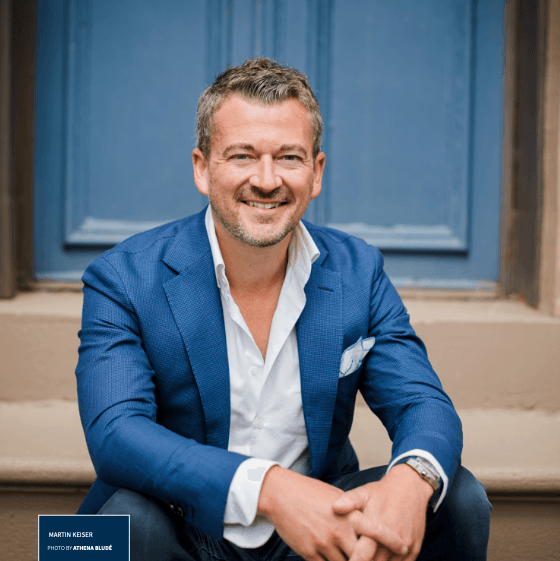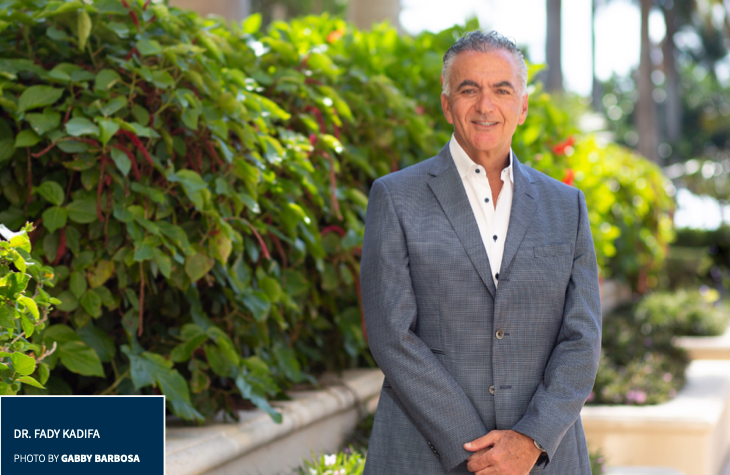Unconventional Candidate For a Lung Cancer Hero
"Although there is no shortage of problems to be solved across the health landscape, Marty made his bio debut by tackling one of the biggest addressable markets in oncology: lung cancer."
In 2018, at the height of his Wall Street career, at the age of 32, and with a wife and two young daughters to support, Marty Keiser made a life-changing decision to walk away from everything and go all in on what he believed to be the early innings of a bio revolution.

Marty believed that the next wave of medical innovation would derive from creative entrepreneurs who seamlessly integrate data, technology and capital; inject data and technology into the research and development process; rely on people and money to accelerate growth; and identify strategic partners to fast-track the commercialization of biomedical solutions.
Although there is no shortage of problems to be solved across the health landscape, Marty made his bio debut by tackling one of the biggest addressable markets in oncology: lung cancer.
LiquidLung, a startup launched in December 2018, is focused on radically improving the detection, diagnosis and treatment of lung cancer, and it is far from your average biotech startup. The company is entirely virtual — no lab, no overhead. What it does have, however, is a comprehensive portfolio of science required for the detection, diagnosis and treatment of lung cancer such as the industry has never seen.
Whereas academia and industry are heavily focused on circulating tumor DNA and cell free DNA, under Marty’s leadership as founder and president, LiquidLung’s focus is on the underlying biology of the patient, not the tumor. A combination of gene expression analysis and evolutionary computing methods is the key differentiator for the company.
What began with four novel biomarkers required to diagnose a prevalent subtype of non-small cell lung cancer is now a validated portfolio of 128 novel RNA gene expression biomarkers across six diagnostic categories (lung cancer detection, small cell lung cancer classification, non-small cell lung cancer classification, and classification of the three most prevalent histological subtypes of non-small cell lung cancer).
All markers have been prospectively validated across two independent cohorts with impressive accuracy. LiquidLung’s 23 mRNA lung cancer detection markers, for example, validated in a prospective validation study with 97% sensitivity and 79% specificity (out of sample). More importantly, when the lung cancer detection model was applied to the validation dataset, they prospectively detected 100% of stage 1 lung cancers, 89% of stage 2 cancers, 100% of stage 3 cancers, and 100% of stage 4 cancers — positioning the company to lead in the coveted (and currently untapped) early detection market.
Further, by mathematically optimizing their lung cancer detection model biased toward specificity, they demonstrated a positive predictive value of 100% and a negative predictive value of 98.9% (based on an assumed lung cancer prevalence of 3% in a high-risk population of patients). Interestingly, the new model was optimized purely from mathematics alone and did not require the discovery of any new biomarkers. This is another differentiator and example of the unique approach taken by the company.
If that weren’t enough, Marty has great expectations for the 105 type/subtype biomarkers in inventory and believes that these markers not only have the potential to further enhance the sensitivity and specificity profile of their lung cancer detection test, but that they may also unlock new product opportunities for downstream testing and procedures (definitive diagnosis, staging, therapy selection, treatment response and drug development).
Almost more impressive than the science is the fact that LiquidLung completed all biomarker discovery and research and development validation studies in less than six months on a very modest sum of seed capital. Marty’s hope, fueled by a deep and genuine love for people, is that the speed and efficiency related to their business model and research and development process will pass down to patients in the form of effective and affordable bio solutions that are easily accessible to people all around the globe.
Marty is an unconventional candidate for this award. He doesn’t have any of the degrees or industry accolades that most of the candidates will likely have. But through creative vision, resourcefulness and a willingness to take risks and embrace new technologies, Marty has made an incomprehensible contribution toward solving a major unmet medical need that has the potential to save many lives, reduce risks and generate significant economic value for patients with lung cancer, payers and all of his stakeholders.
I hereby nominate Marty Keiser for a Lung Cancer Heroes® award.



